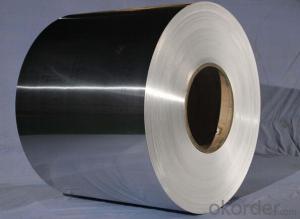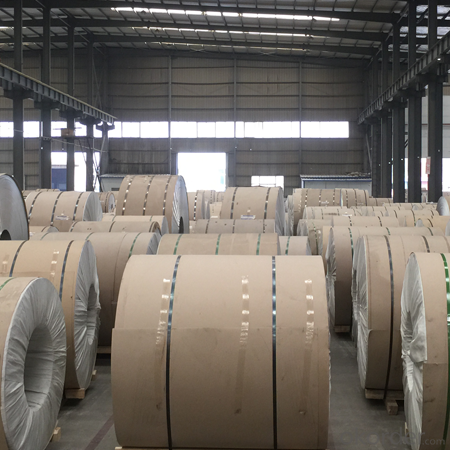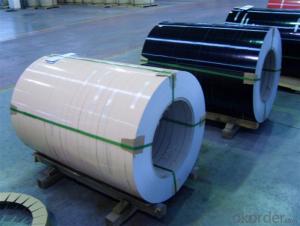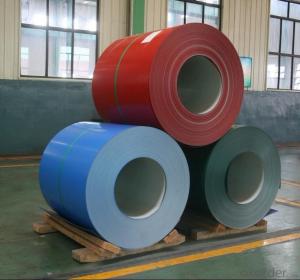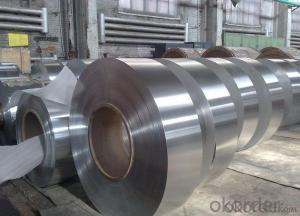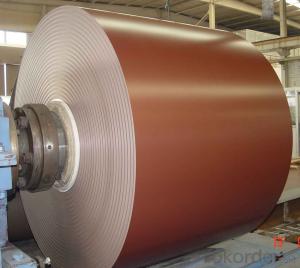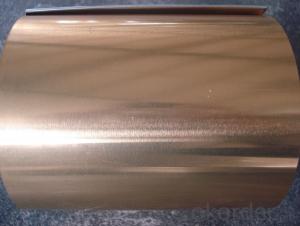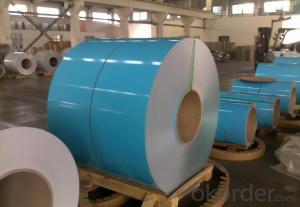Aluminum Coil White for Interior Decoration - Color Coated Aluminium Roll
- Loading Port:
- Shanghai
- Payment Terms:
- TT OR LC
- Min Order Qty:
- 5 m.t.
- Supply Capability:
- 50000 m.t./month
OKorder Service Pledge
OKorder Financial Service
You Might Also Like
Specification
Color Coated Aluminium Roll For Interior Decoration
Specifications
Grade
| 1000 Series: 1050 1060 1070 1100 1200 1235 etc. 3000 Series: 3003 3004 3005 3104 3105 3A21 etc. 5000 Series: 5005 5052 5083 5086 5154 5182 5251 5754 etc. 6000 Series: 6061 6063 6082 6A02 etc. 8000 Series: 8006 8011 8079 etc. |
Thickness | 0.05~10mm |
Width | <1600mm |
Color | Metallic, Solid, RAL or by customer requirements |
Coating paint: | PVDF(Polyvinylidene Fluoride), PE(Polyester ) |
Coating thickness | as per customer’s request |
Gloss | 10-90%(EN ISO-2813:1994) |
Total coating thick | Polyester18~25micron(EN ISO-2360:1995) PVDF25 ~35micron(EN ISO-2360:1995) |
Coating hardness | 2H |
Protective film | PVC film, Colorless transparent or White-black |
Adhesion | 5B (EN ISO-2409:1994) |
Impact resistance | No cracking and peeling (A.S.T.M D2794-1993) |
Flexibility (T-bend) | 0T- 2T |
Temper | H16, H18, H24, H26, H26 |
Certification | ISO9001:2000, CE, SGS |
Coil's standard diameter | 1100mm |
Inner Diameter | 405mm/505mm |
Coil's standard weight | 2000kgs |
Payment | L/C ,T/T |
Characteristics
1) Excellent weather-proof durability
2) Anti-ultraviolet
3) High erosion resistance
4) Stable color and gloss
5) Good mechanical processing performance
6) Abrasion resistance
7) Anti-impact
8) High flexibility
Coating varieties
Polyester Coatings (PE)
PE (polyester) coatings exhibit an excellent combination of hardness, flexibility, flow, appearance, and superior resistance to dirt retention in indoor and outdoor applications. These coatings are highly resistant to abrasion, metal marking, staining, and marring, and require minimal maintenance. Glazetech uses polyester paints which provide excellent colour and gloss retention properties.
Polyvinylidene Fluoride Coatings (PVDF)
PVDF (polyvinylidene fluoride) is a chemical resistant thick film barrier coating commonly used in architectural applications where both excellent appearance and substrate protection must be maintained over a long period of time. This coating is unaffected by most chemicals and solvents and has excellent wear and abrasion resistance. PVDF also has a high dielectric strength, excellent resistance to weathering and the ability to self extinguish.
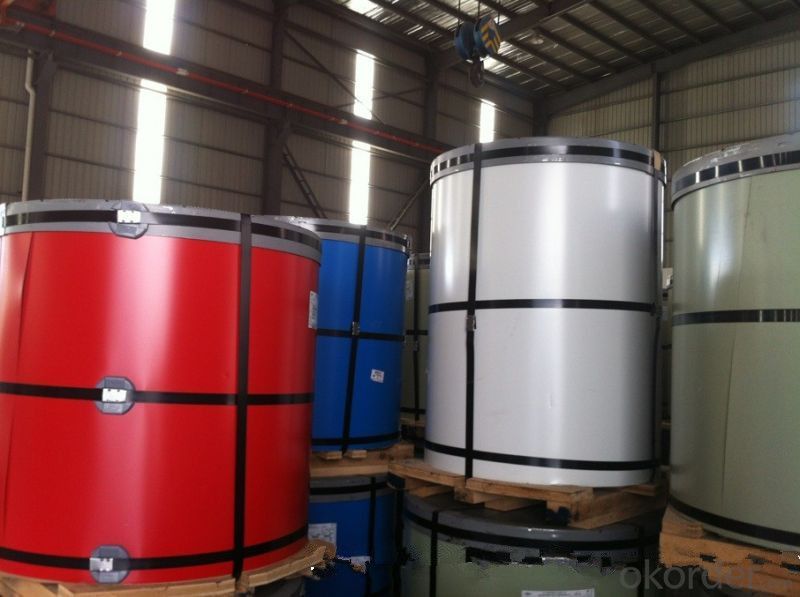
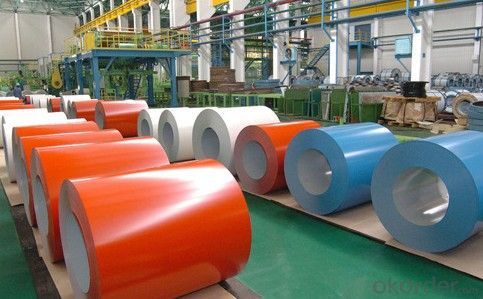
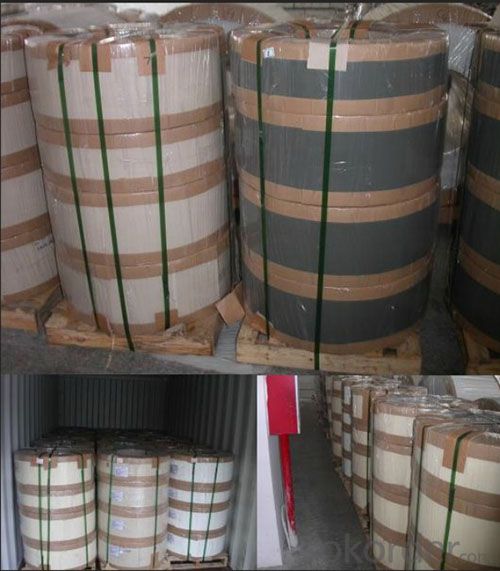
FAQ
--Q: Do you provide free samples?
--A: Yes, free samples will be sent to you on freight at destination.
--Q: Can I get your latest products catalogue?
--A: Yes, it will be sent to you in no time.
--Q: What is the MOQ?
--A: 2 tons
--Q: What are your payment terms?
--A: We accept L/C, T/T.
--Q: What kinds of alloy can you supply?
--A: 1000 series: 1050, 1060, 1070, 1100, 1145, 1200
3000 series: 3003, 3004, 3105, 3104
5000 series: 5052, 5083, 5754, 5182
6000 series: 6061, 6063, 6062, 6063
8000 series: 8011, 8021
--Q: What’s the coating of top side?
--A: PVDF and PE coating
--Q: What kinds of temper can you supply?
--A: O-H112: O,H12,H14,H16,H18,H22,H24,H26,H,32,H34,H111,H112, T3, T4, T6
- Q: How long do aluminum coils typically last?
- Aluminum coils typically have a lifespan of around 15 to 20 years. However, the longevity of the coils greatly depends on several factors such as the quality of the aluminum used, the installation process, and the maintenance and care provided. Regular maintenance, such as cleaning the coils and ensuring proper airflow, can significantly extend their lifespan. Additionally, environmental factors like exposure to harsh weather conditions and corrosive substances can also affect their durability. Therefore, while aluminum coils have a decent lifespan, it is essential to provide proper care and maintenance to ensure their longevity.
- Q: The user is asking if it's possible to use a punching machine to create holes in aluminum coils.
- <p>Yes, you can use a punching machine to punch holes in aluminum coils. Punching machines are designed to cut or create holes in various materials, including metals like aluminum. However, the type of punching machine and the specific settings will depend on the thickness and hardness of the aluminum coils. For thicker or harder aluminum, a more robust machine with appropriate dies may be necessary. Ensure that the machine is capable of handling the material's properties to avoid damage or inefficiencies in the punching process.</p>
- Q: What is the maximum length of aluminum coils?
- The maximum length of aluminum coils can vary depending on various factors such as the specific manufacturing process, equipment capabilities, and industry standards. However, in general, aluminum coils can be produced in lengths ranging from a few hundred feet to several thousand feet. These coils are typically used in applications such as roofing, HVAC systems, and electrical wiring. It is important to note that the maximum length of aluminum coils may also be limited by transportation and handling considerations.
- Q: Are aluminum coils compatible with different joining methods?
- Yes, aluminum coils are compatible with different joining methods. Aluminum is a highly versatile metal that can be joined using various techniques such as welding, brazing, soldering, and mechanical fastening. The choice of joining method depends on the specific application and the desired properties of the joint. Welding is commonly used to join aluminum coils as it provides a strong and durable bond. Several welding techniques like MIG (Metal Inert Gas), TIG (Tungsten Inert Gas), and resistance welding can be used depending on the thickness and type of aluminum alloy being joined. Brazing is another effective method for joining aluminum coils. It involves the use of a filler material that has a lower melting point than the base metal, which is heated to create a strong joint. Brazing is commonly used when the aluminum coils need to be joined to other dissimilar metals. Soldering is suitable for joining thin aluminum coils or when a lower temperature method is required. It involves melting a low-temperature alloy (solder) to join the coils together. Soldering is commonly used in electronics and plumbing applications. Mechanical fastening methods such as bolts, screws, rivets, or clips can also be used to join aluminum coils. These methods provide a reliable and removable joint, making them suitable for applications where disassembly may be required. In summary, aluminum coils are compatible with various joining methods, including welding, brazing, soldering, and mechanical fastening. The choice of joining method depends on factors such as the application, the type of aluminum alloy, and the desired properties of the joint.
- Q: What are the potential applications of mill-finished aluminum coils?
- Due to their versatile properties and finishes, mill-finished aluminum coils can be applied in a wide range of industries. Here are some potential uses for mill-finished aluminum coils: 1. In the building and construction industry, mill-finished aluminum coils have numerous applications. They can be employed for roofing, siding, wall cladding, gutters, and downspouts, among other purposes. The mill finish not only enhances the building's aesthetic appeal but also ensures durability and resistance to corrosion. 2. The automotive industry also utilizes mill-finished aluminum coils because of their lightweight nature, high strength-to-weight ratio, and resistance to corrosion. These coils can be used to manufacture body panels, trims, and other components, contributing to fuel efficiency and reducing the overall weight of vehicles. 3. The electrical industry benefits from mill-finished aluminum coils due to their electrical conductivity and corrosion resistance. These coils are employed in the manufacturing of electrical enclosures, transformers, busbars, and conductors. The mill finish guarantees high-quality surface finishes for these electrical components. 4. The packaging industry widely employs mill-finished aluminum coils because of their excellent barrier properties and formability. They are used to manufacture aluminum foil, cans, lids, and other packaging materials. The mill finish provides a smooth surface, making it suitable for printing and branding purposes. 5. Mill-finished aluminum coils are also used in the manufacturing of household appliances like refrigerators, ovens, and air conditioners. These coils offer lightweight and corrosion-resistant solutions for these appliances, ensuring durability and energy efficiency. 6. In the aerospace industry, mill-finished aluminum coils find applications due to their lightweight nature and high strength. They can be utilized to manufacture aircraft structures, interior components, and other parts. The mill finish provides a smooth surface, enhancing aerodynamic efficiency and reducing drag. 7. The marine industry extensively uses mill-finished aluminum coils for various applications. They are employed in the manufacturing of boat hulls, decks, and other components due to their corrosion resistance and lightweight properties. The mill finish ensures a clean and polished appearance, enhancing the vessel's aesthetics. In conclusion, mill-finished aluminum coils possess versatile properties such as lightweight, corrosion resistance, formability, and aesthetic appeal, making them suitable for numerous potential applications across various industries.
- Q: What is the difference between hot rolled and cold rolled aluminum coils?
- The main difference between hot rolled and cold rolled aluminum coils lies in the manufacturing process. Hot rolled aluminum coils are produced at temperatures above the recrystallization temperature, resulting in a more malleable and ductile product. Cold rolled aluminum coils, on the other hand, are processed at room temperature, making them stronger and more rigid. This difference in processing also affects the surface finish and dimensional accuracy of the coils.
- Q: What is the typical yield strength-to-density ratio for aluminum coils?
- The typical yield strength-to-density ratio for aluminum coils is approximately 0.3 MPa/g/cm^3.
- Q: Im doing an assignment for science and i need to know the nuclear charge of Aluminium?and also is there a difference between Aluminium and Aluminum or can it just be spelt differently?
- Aluminium is the European spelling Aluminum is the American spelling...just like colour and color. Aluminium ion usually has a 3+ charge
- Q: Can the little can opening cap things on an aluminum can be recycled? My friend told me if you fill a two liter bottle with them you can get loads of cash. Is this true?
- Yes. Aluminium can be recycled. (watch the TV ad, UK) No. You would need tons of the stuff ( a tonne of copper is only around ?1000) They are usually colleced for charity. And they save up all the 2 litre bottles full! Feel the weight, aluminium is very light.
- Q: What are the potential applications of pre-painted aluminum coils?
- Pre-painted aluminum coils have a wide range of potential applications in various industries. They are commonly used in the construction sector for roofing and cladding purposes due to their durability, corrosion resistance, and aesthetic appeal. Additionally, they can be found in the transportation industry for manufacturing automotive parts, such as body panels and trim. Other potential applications include signage, electrical enclosures, and appliances, where their lightweight nature and ability to withstand harsh conditions make them an ideal choice.
Send your message to us
Aluminum Coil White for Interior Decoration - Color Coated Aluminium Roll
- Loading Port:
- Shanghai
- Payment Terms:
- TT OR LC
- Min Order Qty:
- 5 m.t.
- Supply Capability:
- 50000 m.t./month
OKorder Service Pledge
OKorder Financial Service
Similar products
Hot products
Hot Searches
Related keywords
